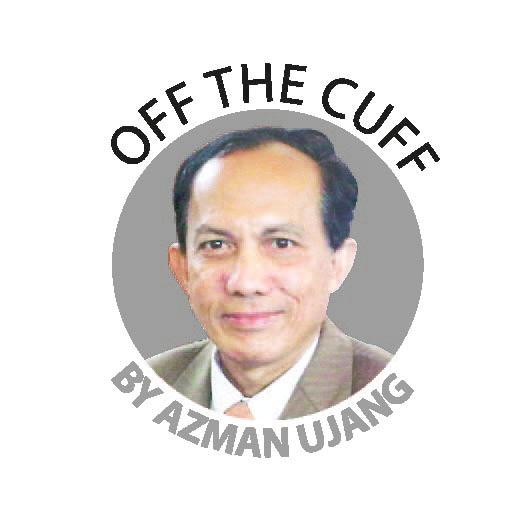AS the transboundary annual haze blankets vast areas in Indonesia and Malaysia causing very poor visibility and health-related problems, the flow of news and information, however, is getting clearer over why this perennial scourge never seems to go away.
Prominent Indonesian environmentalists are livid and have exposed why millions of people in the haze-hit regions are living in discomfort for the past weeks – it’s due to no action being taken against anyone for causing forest fires, the source of the smog that we have been forced to “import” from our neighbour.
How much longer will the people in both countries as well as Singapore have to suffer from such inaction or to put it more bluntly – All talk but no action?
Indonesian President Joko Widodo visited hot spots earlier this week to see for himself the devastation caused by open burning not due to nature as seen recently in the Amazon, but by plantation companies.
Several Malaysian companies operating in Indonesia have also been officially identified as being responsible for some of these fires.
But according to WALHI, the Indonesian Forum for Environmental Resources, no action had been taken against individuals or companies that started the burning while the 10 companies found guilty for causing such fires between 2012 and 2015 had also not faced any penalties.
And to make matters worse, we are now told by WALHI that right now more than 11,000ha of forest land in Jambi is on fire and no action had been taken as well against anyone.
Jokowi cut a forlorn figure on the front page of theSun on Wednesday when assessing the damage done by forest fires in Pekanbaru, Sumatra.
The president was not wearing a face mask while the firefighters photographed behind him had their masks on.
Some 10,000 people are involved in the firefighting operations but even if a small proportion of the fires are put out including by cloud seeding with use of many aircraft as Jokowi said, it would not have a lasting impact unless punitive and deterrent action is taken against these environmental criminals.
In Malaysia, although there are about 40 Acts passed by Parliament covering all sorts of pollution, the enforcement and deterrent sentences are the weakest links that render these laws toothless.
Gurmit Singh, one of our most passionate environmentalists, said although the Environmental Quality Act had been in existence for 45 years, only one person had been imprisoned so far.
The big question is why have so many laws when polluters like those responsible for dumping toxic waste in Sungai Kim Kim and Pasir Gudang in Johor can get away with impunity?
They think nothing about paying small fines as these big-time polluters have been doing all this time. Without jail terms for those found guilty, it will happen again and again just like the haze.
It’s long overdue that the courts begin to treat crimes to the environment more seriously and punish those responsible, or shall we say, irresponsible, according to the severity of the crime.
As Gurmit aptly put it: “Most companies can afford the fines but if there is a risk of being sent to jail, they would think twice.”
In all probability, more than twice, perhaps they would think 10 times and this is what is deemed as deterrence.
Over at Indonesia, too, although the essence of diplomacy among Asean countries is one of non-interference in each other’s internal affairs, it is not out of place for member nations to press Jakarta to act more punitively to at least minimise the damage done by this unwanted “annual environmental export”.
What is required doesn’t entail passing more laws or rocket science studies but pure common sense.
All stakeholders especially governments already know the four “W’s” – who, why, when and where – of this haze crisis; so let’s get to the bottom of it at once.
Haze is one man-made “disaster” that can be prevented if common sense is used and applied effectively.
Of course, it’s easier said than done but it’s doable, unlike natural disasters where the victims are at the mercy of nature.
We are entering into this era of what I would call “The Common Sense of Haze”.
And at the risk of repeating a cliche, let’s walk the talk.
Comments: letters@thesundaily.com















